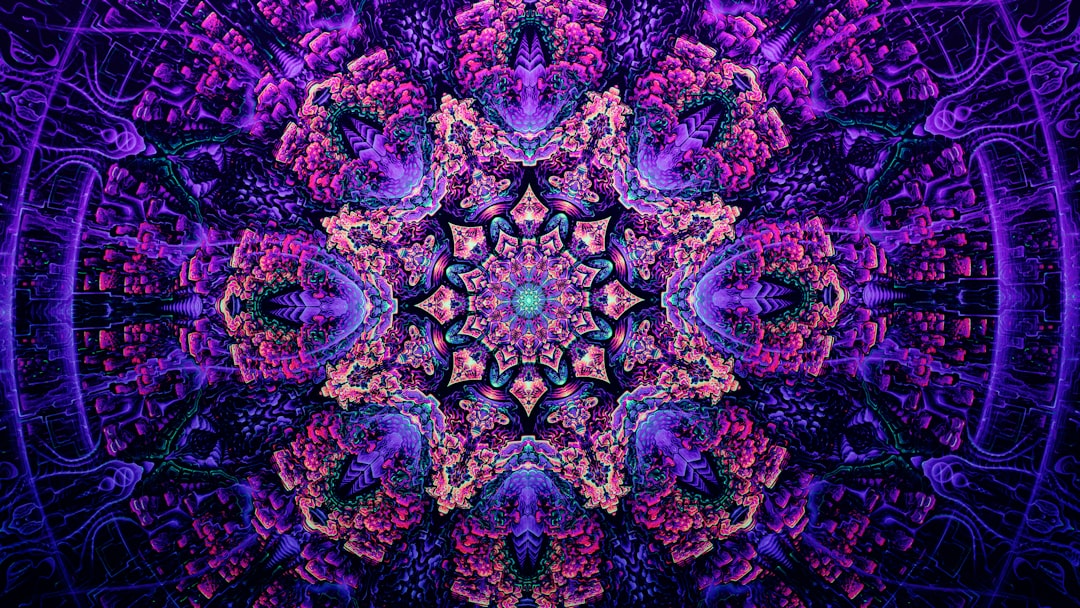Could psychedelic treatment be a breakthrough for postpartum depression?
Can a single dose of a psychedelic drug effectively treat postpartum depression in just one week? Recent clinical trial results suggest this revolutionary approach might transform maternal mental health care, offering hope to women struggling during one of life’s most vulnerable transitions.
The groundbreaking trial results
A new Phase 2 clinical study testing RE104, a psilocybin-like psychedelic prodrug, has delivered remarkable results for women suffering from moderate-to-severe postpartum depression. The trial, which included 84 women, demonstrated that 71.4% of patients achieved complete remission within just 7 days after receiving a single 30mg subcutaneous dose, compared to only 41% in the control arm.
The data is compelling: 77.1% of participants showed a significant response (≥50% symptom improvement) by Day 7, with patients experiencing an average 23-point reduction in the Montgomery-Åsberg Depression Rating Scale (MADRS), versus a 17.2-point reduction in the control group. Perhaps most impressively, treatment effects were observed within 1 day and remained consistent throughout the 28-day follow-up period.
“Postpartum depression has not received the attention it deserves, but the medical field is beginning to sharpen its sights on the unique mental health concerns of new mothers, for whom standard therapies may be inadequate,” notes Dr. Barnett of Cleveland Clinic, as reported in their clinical research publication.
How RE104 works and what treatment involves
RE104 is a prodrug of 4-OH-DiPT designed to replicate the effects of psilocybin (the active compound in “magic mushrooms”) but in a shorter timespan. Developed by Reunion Neurosciences and now being advanced by MPM BioImpact, this compound targets serotonin receptors in the brain, enhancing sensory input processing and promoting structural and functional brain plasticity.
The treatment protocol is comprehensive and carefully supervised. Patients undergo extensive physical and psychological testing before treatment. On treatment day, they participate in a 2-hour monitored session during administration, followed by a 6-hour observation period. Each patient is paired with a monitor who remains present throughout the entire experience. Before being dismissed, patients receive a psychiatric evaluation, with follow-up monitoring continuing over several weeks.
“We want to help these patients get back to the people and things that are most important to them, and we believe this study may be a meaningful step in the right direction,” explains Dr. Barnett, highlighting the potential impact on maternal-infant bonding and family well-being.
Advantages over traditional PPD treatments
While traditional postpartum depression treatments typically involve selective serotonin reuptake inhibitors (SSRIs), these medications often take weeks to produce effects and come with side effects that can be particularly challenging for new mothers.
The RE104 treatment represents a potentially revolutionary approach with several key advantages:
Rather than requiring daily medication, RE104 involves a single-dose administration. Unlike SSRIs which may take weeks to show improvement, RE104 demonstrates rapid onset of action—often within 24 hours. The effects appear to last at least 28 days from a single treatment, and the medication is administered in a supervised clinical setting with trained professionals to ensure safety.
Some PPD cases occur specifically as an outcome of pregnancy and might need just one treatment session to recover, as noted by researchers at the University of New Mexico. This could dramatically change the treatment paradigm for a condition that affects so many new mothers.
Limitations and future considerations
Despite the promising results, several important factors must be considered before this treatment becomes widely available:
RE104 remains an investigational drug not yet FDA approved. The treatment currently cannot be used for breastfeeding mothers, which represents a significant limitation for many women with PPD. The full treatment protocol requires an 8-10 hour clinical visit, making it logistically challenging for new mothers. Long-term safety data remains limited, and access will likely initially be restricted to specialized centers.
The regulatory landscape around psychedelic treatments continues to evolve, with lingering stigma potentially affecting both physician and patient acceptance. However, with Reunion Neurosciences planning to enter late-stage trials following these positive Phase 2 results, the path to potential FDA approval continues to advance.
The importance of comprehensive support
While pharmacological interventions like RE104 show tremendous promise for rapid symptom relief, the importance of emotional support and education during the postpartum period cannot be overstated.
The transition to motherhood involves complex psychological and social adjustments beyond just biochemical factors. Even as women undergo breakthrough treatments or during early recovery, comprehensive support platforms can provide vital tools for managing emotional well-being during this vulnerable time.
Evidence-based courses, supportive communities, and stress-reduction techniques all have important roles to play alongside medical interventions, creating a holistic approach to maternal mental wellness.
Research momentum builds
Several prestigious research institutions are actively advancing this promising field:
The University of Colorado Anschutz is conducting an RE104 study for moderate-to-severe PPD in women aged 18-45. The University of New Mexico plans an RE104 study for cancer patients with depression/anxiety starting in 2025, while also conducting a Phase 3 uAspire study testing psilocybin for major depressive disorder. Meanwhile, Cleveland Clinic researchers are actively testing RE104 specifically for postpartum depression.
As research accelerates, we may be witnessing the early stages of a paradigm shift in how we understand and treat postpartum depression.
The potential for rapid postpartum depression relief through psychedelic treatment represents hope for millions of women and families affected by this condition. While regulatory hurdles remain, the possibility of a single-session treatment with lasting effects could transform maternal mental health care, helping new mothers return more quickly to what matters most—bonding with their babies and embracing the joys of motherhood.



